I must try and refrain from contributing to the swear jar today, but seriously, WHAT THE CUSS is wrong with the cycling universe?
All we’ve heard all month (nay, all year) has been:
“Okay, you got me, I doped, nobody loved me in high school, but now I’m hosting the coolest party in town, y’all.”
or
“There’s no effing way I was ever gonna dope but that’s why I never went ProTour and one day I’ll recover from the damage that did to my ego.”
or
“You’ll never catch me, I was clean and the cancer-fighting Guardian Angel of Texas will prove you all wrong.”
Then there are the endless speculations about who we think did dope and who we know didn’t….
This is professional men’s cycling at its classiest, surely. It’s the cool party every self-respecting junior, U23 rider, pro-conti rider, U.S.-based rider and retired rider wants to be at, right?
Hell, you’re only taking a job as mechanic in that shitty Conti team in the vain hope that you might one day fill in for the 3rd mechanic who’s sick from Astana and then you’re PRO TOUR BABY!!
In the midst of all these revelations, this social media gossip and inside knowledge, the oft-adored binge and purge cycle of lies and honesty, and the countless millions of dollars being spent on clearing names and cleaning the sport, we got some actual shitty news.
AA Drink announced it would not be renewing its sponsorship of the women’s team AA Drink-Leontien.nl , a team it had been involved with for nearly a decade.
Since her retirement in 2004, the highly decorated Dutch cyclist, Leontien van Moorsel (nee Zijlaard), had been vigorously involved in running women’s pro teams.
Van Moorsel won World Championships on the road and track, and Olympic gold medals in the road race, time trial, and individual pursuit, and teams under her tutelage had been, unsurprisingly, a very strong presence in the Dutch peloton over the past decade.
More recently though, AA Drink had come to the rescue of a large contingent of the Garmin Cervélo women’s team after Slipstream Sports had not bothered to find the funds to continue their hugely successful women’s program.
You know, no biggie: teams spend tens of millions of dollars on their men’s programs, and this was one of three big teams that was running a concurrent women’s program for veritable peanuts.
(Figures can be bandied about on the actual budget of many pro women’s teams and of course, numbers vary wildly. But suffice to say, we’re talking less than 1% of the budget of a men’s pro team).
In November, 2011 we got a lame but diplomatic press release from Mr. Vaughters expressing his regret and disappointment.
Suddenly former TT World Champion Emma Pooley; former 3-time AUS road champion Carla Ryan; reigning AUS road champion Alexis Rhodes; GB workhorses Lucy Martin and Sharon Laws; GB road champion Lizzie Armitstead; and Dutch sprinting powerhouse Kirsten Wild – they were all out of a job.
With Slipstream contracted to pay out the second year of many of these riders’ contracts, AA Drink stepped in and signed Pooley, Armitstead, Laws, Martin and Ryan. They were joined by dynamic American sprinter Shelley Olds (from Diadora Pasta Zara). The roster may have been stacked with talent, but it was noticeably crowded.
By May this season, there were plenty of riders who hadn’t pinned on as many race numbers as they’d hoped. Ryan had lamented she was ‘pretty free’ in May/June and considered a stint in the U.S.
Combine that with races being cancelled and an all-important Olympic year, and it was always going to be a challenge catering to the needs of so many of these world-class riders seeking selection.
Therein lies the problem: without a consistent program of races throughout the season, without great prize money or even the chance of regularly racing for your team leader, World Championships and Olympics are the big prize.
Women’s cycling runs on a four-yearly cycle. National coaches are hired and fired every four years, federations fund their programs based on medals won, and riders have one opportunity to perform on a world stage. One chance where all their hard work , sacrifice, effort, talent, skill and determination is demonstrated.
The broader cycling audience, composed of fans, riders, journalists, team staff and administration, all say publicly that they want a level playing field. Yet we obsequiously follow the ridiculous soap opera of scandal, supposed cheating, and high drama of the ‘cool party.’
We crave the dramatic Ricco-style attacks in stage races and get ‘bored’ when pelotons just ramble along at 40km/h for days on end.
Why are we so hard to impress? Does it only take supreme acts of strength and speed for us to get up of the couch and cheer? Is that why male cyclists don’t watch women’s cycling, because they can ride as fast (or faster) as we can?
Perhaps if were able to enjoy the battles for what they are: human competition, with all its human flaws like fatigue and mistakes and ‘failures,’ then we would value the extraordinary stories and performances that our women cyclists would have to offer.
When Alyson Felix (USA) won the women’s 200m in London, it was an inspired, graceful, and dominant performance. Not one commentator needed to compare her to Usain Bolt and his ‘faster’ time.
Women’s cycling doesn’t need to apologise for being a smaller, slower, less dramatic version of the ProTour. I realise now I was wrong in my ideas a few months back about instilling the help of important men, when they don’t give a crap. We don’t need the scandals, the lies, the drama and the bullshit.
We want to keep all the fabulous committed staff we have, to race the way we do, and show the world how awesome it can be. Every staff member of U.S. and European women’s teams are there because they love it, not because they’re waiting to get a better gig in a ProTour team.
Thankfully, on July 27 this year, we witnessed what was arguably the most exciting, dramatic and challenging one-day race of the season: the Olympic Women’s Road Race. World number one, Marianne Vos, lived out her dream of winning gold over those tense, waterlogged final kilometres – and more people watched on television than the men’s race the previous day.
Against the backdrop of the biggest global sporting event in the world, sports fans were reminded what it was they love about sport: the battle itself.
We just made our own party, baby.

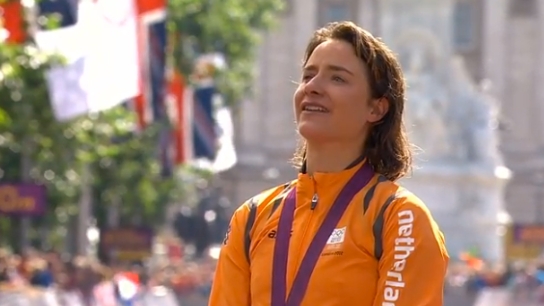


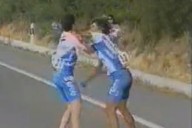
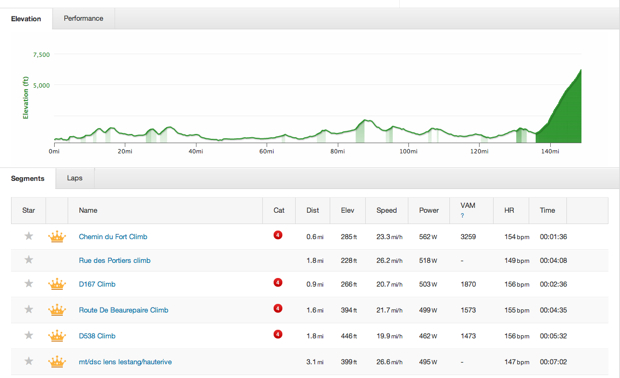


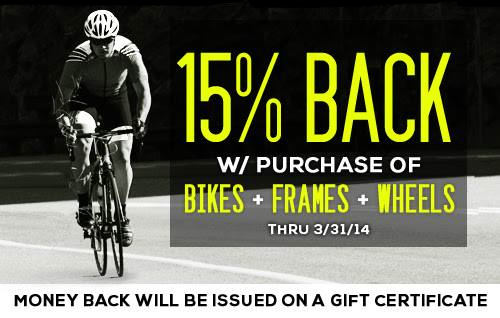


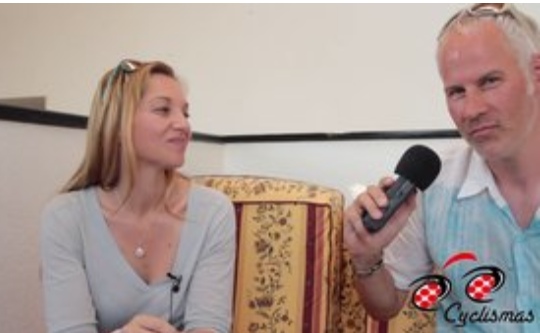

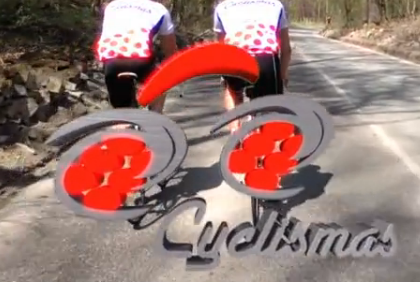

3 Comments
I dont watch women’s cycling because there isn’t women’s cycling to watch. It needs a presence and some solid marketing to get the exposure to attract sponsors and fans. There are not even women’s races at club level so the breeding grounds for the profile and exposure is not there. You are all lumped into club races and this is mainly men. I think that the market could be massive for sponsors as there are a lot of women riding and they are all consumers in a big way and for now untapped.As for the drugs I am sick of all the BS surrounding the topic, riders that fess up in the last days of their career and others that take the “I had no choice” line etc. All self serving BS and poor me, with that sort of life view I can imagine that they did need drugs to perform. Throw the lot out and punish everyone that uses or used drugs to cheat in our sport. Two feet in or two feet out – we clean up or we dont. There are no half measures involved if the outcome we are after is a clean sport.
I’m surprised that Pat McQuaid hasn’t followed in the footsteps of that other giant of the sporting world, Sepp Blatter, in suggesting that the most obvious way to gain more attention for women’s cycling is to have the riders wear smaller, tighter fitting shorts. Of course, they could just do away with the kit and do a Pendleton instead – but have the team colours painted on by a mixture of sponsors / lottery winners before each race. If Pat chooses not to take me up on my idea (though, given his past history of fighting injustice in South Africa, I can’t see why he wouldn’t), perhaps one way of increasing coverage of women’s cycling is that TV companies who buy the big races – Grand Tours / Classics – should also be required to show the equivalent women’s races on their stations as well as the men’s. That way, sponsors with deeper pockets, might just be persuaded to get involved, thereby starting off a small snowball down the hill of cycling equality.
[…] Bridie O’Donnell has some harsh words about it all link […]